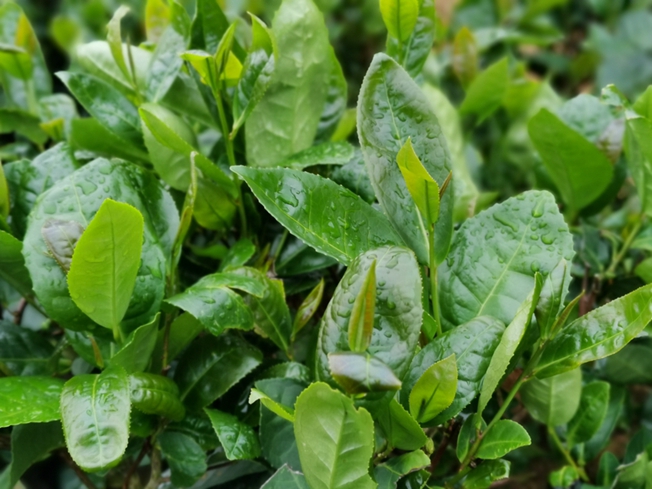- Culinary
- Ingredients
Yongchun Buddha's Hand Tea
Trademark Registrant: Yongchun County Tea Industry Association
Yongchun Buddha's Hand Tea, also known as Xiangyuan (Fragrant Pomelo) or Xueli (Snow Pear), is a signature specialty of Yongchun County in Fujian Province and a certified national geographical indication product. Its name comes from the unique, hand-like shape of its leaves, earning it the nickname "Golden Buddha's Hand."
The tea is primarily cultivated in the high-altitude regions of Kengsukeng, Yudou, Kengzikou, Jindou, and Guiyang, at elevations between 600 and 900 meters. It is made from the tender tips of Buddha's Hand tea trees, producing one of Fujian's most distinctive oolong teas.


With a cultivation history spanning more than 300 years, Yongchun Buddha's Hand Tea has long been grown across large plantations in the county. In 2008, it was officially recognized as a "Famous Chinese Brand" and awarded the prestigious title of "China's First Tea for the Olympic Bid."
Since the 1950s, Yongchun County has prioritized expanding its tea industry, resulting in a significant increase in planting areas. Today, Yongchun is China's leading producer and exporter of Buddha's Hand Tea, shipping to over 20 countries and regions, including the United States, the European Union, Japan, and Southeast Asia.
On December 28, 2006, China's former General Administration of Quality Supervision approved geographical indication protection for "Yongchun Buddha's Hand." In November 2010, its production techniques were inscribed on Fujian Province's list of representative intangible cultural heritage. By 2021, the county had cultivated 48,000 acres of Buddha's Hand Tea, supporting 38,000 tea-farming households, with an annual production of 6,900 tons, generating a production value of 1.5 billion yuan and contributing 250 million yuan in taxes.
